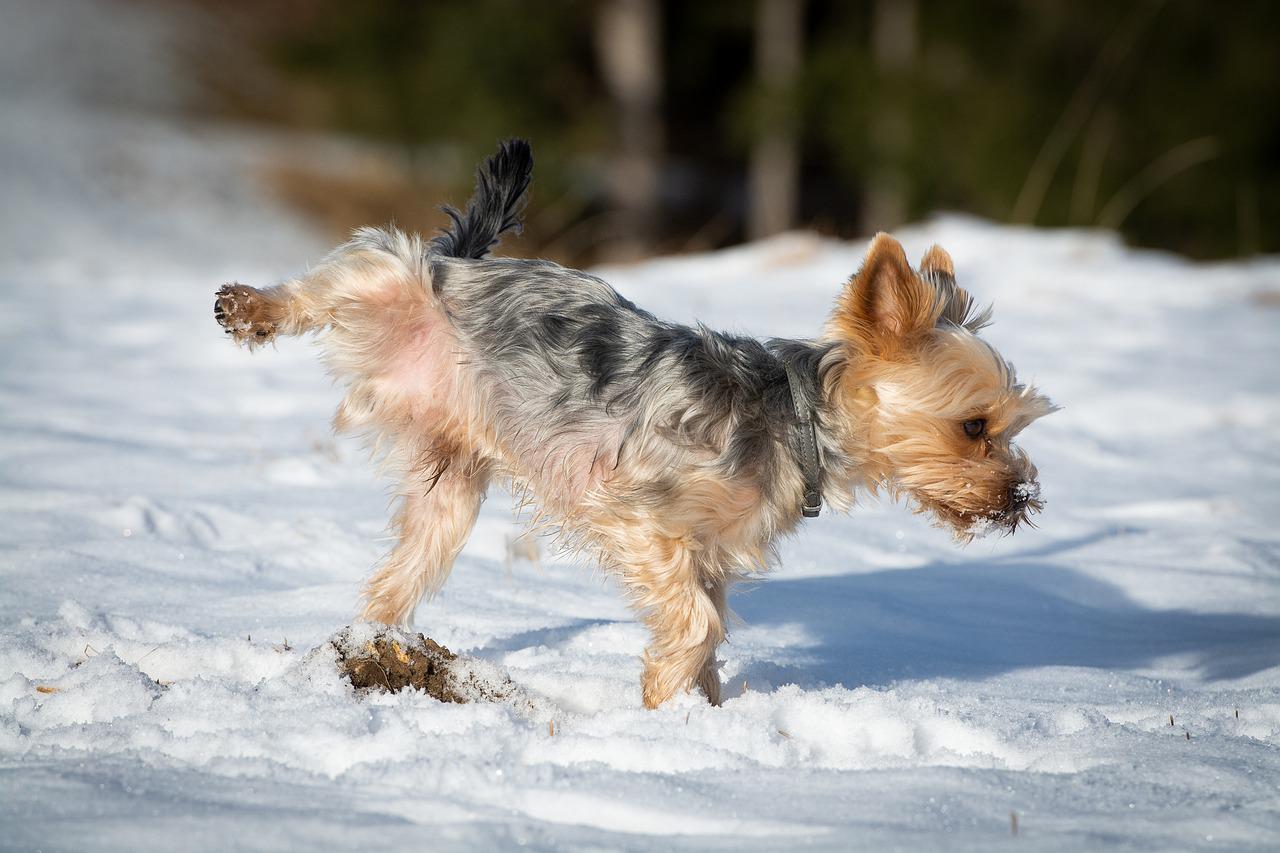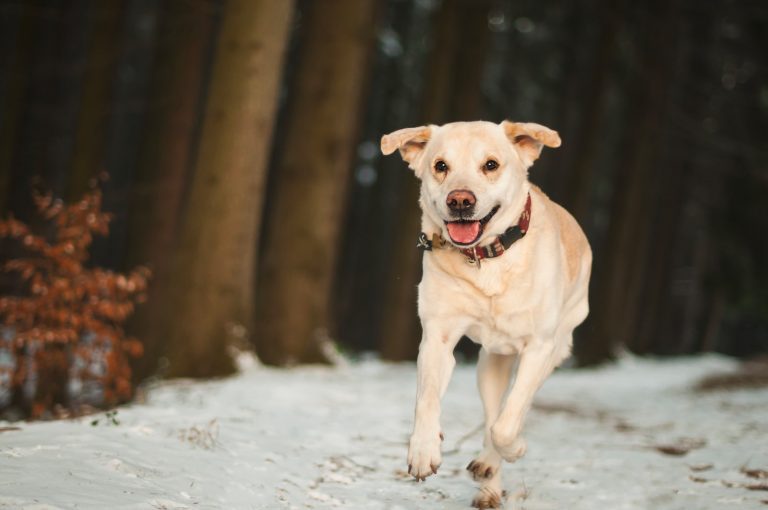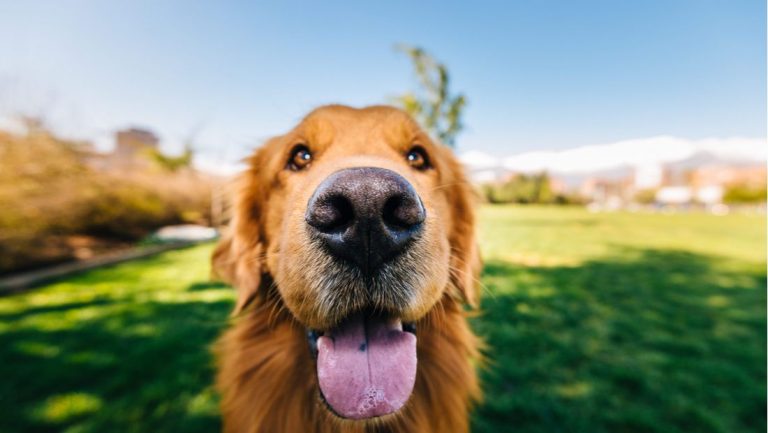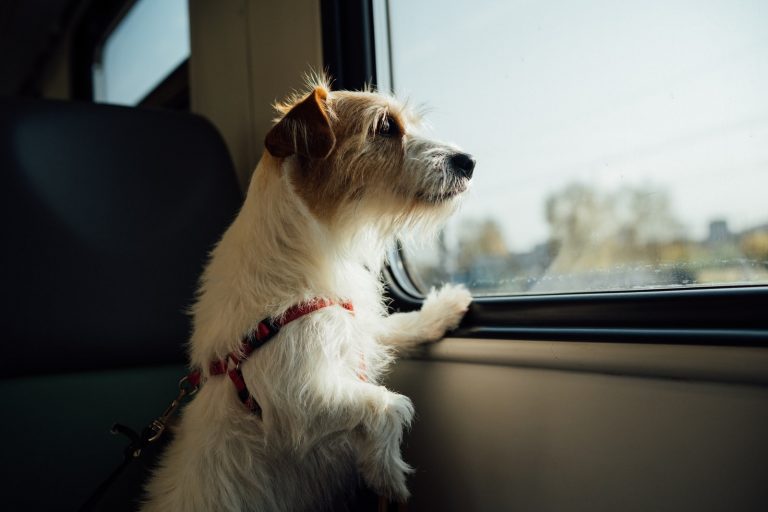I still remember the time when I was five years old. Almost every night, I would wet my bed, which made my mother furious. I never really understood why that happened. No one knows for sure, but maybe it was due to my fears, a weak bladder, or just me feeling cold.
Regardless of what the reasons were, it made me feel extremely miserable about myself. Well, I grew out of my condition, as I hit puberty, but the memory of me peeing in my sleep still haunts me to this day.
I have had a love for dogs since I was a little kid. I love the fact that they are incredibly lovable, playful, and responsive creatures. I love how they go out of their way to make their human masters happy. I also enjoy how they imitate our actions, which in most cases, is the goofiest of things, but still, I admire it.
Speaking of mimicking, last week, my dog Zorro gave me the most unusual surprise, which was rather horrid than funny.
While I was asleep, my fuzzy canine took a leak on my bed, which I discovered after I woke up. More than my bed, I am worried about my pooch. What if it’s sick? What if it has a disease?
My dog peed on my bed, what does it mean?
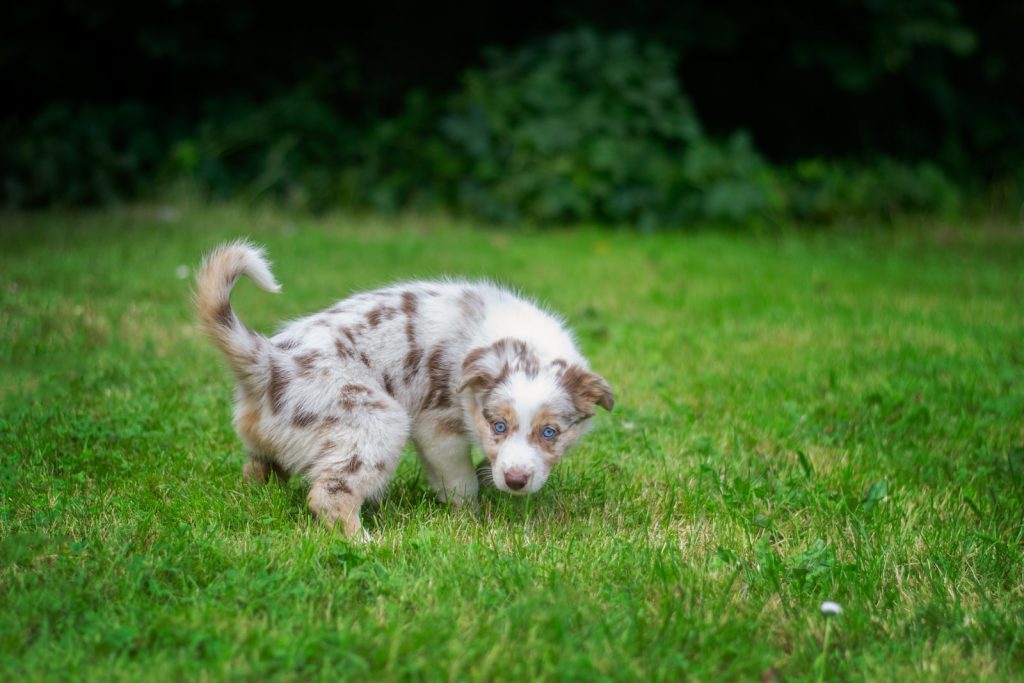
Why Do Dogs Pee On Their Owner’s Bed?
To answer the question my dog peed on my bed, what does that mean, let us look into several reasons behind this behavior.
After the strange incident of discovering doggy piss on my bed, I got anxious. I took my dog to the vet’s, and also surfed the internet to find the root cause behind this behavior.
From what I saw, there is no definite answer to why a dog would want to take a leak on your bed. However, let’s take a look at some of the possibilities behind your dog wetting your bed.
One of the reasons why dogs pee on your bed is urinary tract infection. Just like humans, this issue is not uncommon in dogs. Urinary tract infection is the bacterial invasion of the urinary tract. Bacteria in the urinary tract can cause painful urination, decreased bladder control, and even blood in the urine.
In most cases of a dog peeing in your bed, UTI is the culprit. When suffering from UTI, your dog remembers the housebreaking training you’ve imparted.
However, the condition is too painful, that the dog not only fails to hold the urge to urinate but also finds it hard to make it to its designated urinating area. The pain is so severe that it almost makes the dog feel that their bladder is about to explode, although it can never happen.
A dog suffering from UTI needs more bathroom breaks than usual, but they fail to get out of the bed, while their urine leaks. However, with the right medical assistance and the correct dosage of antibiotics, this issue can be handled well.
Arthritis is not an uncommon health issue among aging dogs. But it does not mean that younger canines cannot experience it. This disease affects a dog’s bones, which makes it difficult for them to move around. And while they are struggling with the pain, they might unintentionally urinate on your bedding.
You may find it strange, but dogs suffering from arthritis fail to empty their bladders during litter breaks. This makes them leak the excess urine when they come back inside. If arthritis is the problem, you should seek medical support for your four-legged buddy.
Meanwhile, make them sleep outside your bedroom. Arrange for them, comfortable bedding that is washable, so they don’t go around the house, shedding droplets of piss. Other medical issues that weaken your dog’s bladder control are diabetes, injuries, and cognitive problems.
If you have consulted a vet, run all the tests, and found your dog physically fit, then the reasons behind them peeing on your bed are more psychological than physical. There is a chance that your dog is wetting your bed because of fear, stress, or anxiety. Maybe they are afraid of the rain, thunder, or snow. Perhaps, it’s another pet that is bothering them.
It could also be a guest in your house, and the dog does not approve of it. Remember, any form of emotional distress can easily deprive a dog of the ability to exercise control over their bladder. It also makes them behave in a way that you wouldn’t expect from them in normal circumstances.
The presence of an unknown entity in your house can frighten your dog to point, where they find themselves unable to leave the room on their own in the middle of the night and make it to the litter area.
If you want to figure out whether or not it is a psychological issue that makes your dog wet the bed, keep a close eye on them. Try to figure out what they do before they urinate on your bed.
Marking their territory by spraying urine is a part of a dog’s basic instinct. This behavior is typical in both female and male dogs. The act of marking is often seen in parks, on tree trunks, and fire hydrants.
Using sprays of urine to mark their territory makes a dog feel as if they own that place, and no other dog should be allowed in. Some dogs exercise their instinct even inside the house. It makes them feel that by doing so, they have freed the space of any possible intruders.
If your dog is feeling less confident, they are more likely to mark their territory inside the house. It may be a bitter inconvenience for the dog owner, but this does not count as breaking the house rules.
When marking their territory inside the house, a dog only sprays a few drops of piss in strategic locations. Dogs that are physically fit refrain from wetting their owner’s bed, but if they are feeling insecure, you can expect the unexpected.
If someone or something from the outside has entered your living space and is disturbing your dog, it is better to use positive reinforcement to make them pee where they are supposed to.
Just like humans, dogs too go through hormonal changes as they age. However, one condition that is unanimous among dogs of all ages is hormone-responsive urinary incontinence.
Research has shown that abnormal urinating has a lot to do with a dog’s estrogen levels. A bitch when spayed loses her ovaries, which makes her experience a decrease in estrogen levels. Studies have shown that estrogen is one of the critical controllers to a dog’s urinal sphincters.
In the absence of estrogen, the sphincters tend to relax a lot more. A dog that suffers from hormonal responsive urinary incontinence urinates because its sphincters are relaxed, and it’s not thinking about controlling the bladder.
With age, a dog’s sphincter becomes weaker, and the problem worsens. This is not an uncommon problem among dogs, but it is better to consult a vet before leaving your dog unattended.
Watch the following video on why does a dog pee on the bed.
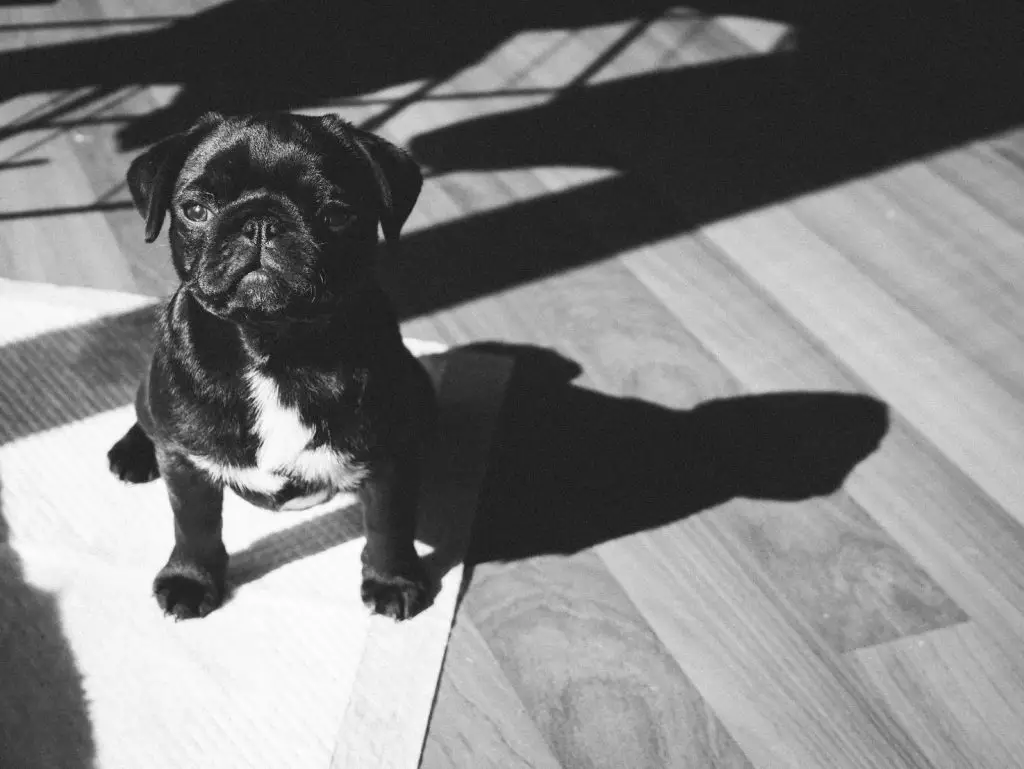
Is Your Dog Peeing On Your Bed Due to a Lack of Housebreaking?
Sometimes the answer to the question my dog peed on my bed, what does that mean is an obvious one: lack of house training.
If your dog pees on your bed or anywhere in the house, you need to determine the root cause behind this behavior. Start by making sure whether or not they are going through any serious medical condition.
If that is not the case, then it is probably due to a lack of housebreaking. It could also mean that the dog was feeling cold or just lazy.
Regardless of what the reasons are, you need to train your dog where to pee, which takes time and patience. Speaking of housebreaking, it is a crucial factor, the lack of which could be the primary reason behind your dog urinating inside the house.
If you are unaware of housebreaking, it is the training imparted to a pet to make them excrete outside the house. Here are a few tips that will help you on the way.
If you think your dog is going through a medical issue, make sure to take them to the vet.
If you don’t plan on using your male dog for breeding purposes, it is better to have them neutered. Not only will it make them healthier, but neutered dogs do not urinate to mark their territory.
In case your dog has taken a leak inside the house, make sure to have the areas thoroughly cleaned with a bacterial cleaner. If you suspect that you have skipped some urine stains, look for them using a UV light.
Observe a strict housebreaking schedule for your dog.
Stick to the housebreaking schedule to teach your dog to excrete only outside the house. If the dog successfully urinates outside the home, praise them well. You can even give them a treat or two.
If your dog urinates or defecates inside the house, you can use a loud command like “NO.” Slight intimidation will keep them from urinating inside the house. Immediately take them outside to pee. If they urinate outside, make sure to praise them.
After they are done pissing, engage with them in a short game of fetch or Frisbee. Whether or not your dog has urinated inside the house, make sure never to punish it.
What to Do When Your Dog Pees On Your Bed?
Now that we have discussed the reasons behind my dog peed on my bed, what does that mean or dogs urinating inside the house, let’s take a look at a few tips on what you can do to discourage the behavior.
If your dog has peed on your bed, the first thing you need to do is limit their access to your bed. This is especially important if you are not around or too busy to keep an eye. Just make sure the door of your bedroom is locked when you are not around.
If you have to go in and out of the room, put your dog on a leash. While they are on the leash, make them lie down or stay with you as you move around. The leash is not some punishment; just a tool that keeps your dog reminded that it needs to abide by what you ask of them.
If your dog has a habit of sharing a bed with you, continue to do that, but only when you are there to watch what they are doing.
Remember that each dog is different and must be handled differently. If your dog is still a puppy and is having a hard time keeping up with the training you provide, limit their access to the bedroom.
Meanwhile, work on their training, a crucial component of which housebreaking is. If the progress is sluggish, spare a moment to have a detailed conversation with a professional dog trainer. A comprehensive training program could be the answer to the problem.
Furthermore, make it a monthly ritual to drive your dog to the vet. In most cases, abnormal urination has much to do with medication, aging, disease, or hormonal imbalances.
If your dog refuses to sleep somewhere else except your bed, there is nothing you can do about it. In such situations, dog diapers and potty pads can come in handy.
When you get in your bed to enjoy a night of sound sleep and notice a wet spot, and you know it is dog piss, your first reaction would be full of anger. This is where you need to stop yourself and think straight, instead of panicking.
Try your level best not to take it out on the dog. Anger and frustration will only scare your dog, which will eventually worsen their urination habits. Move your dog to another room unless you have sufficiently calmed down.

Should You Scold Or Punish Your Dog For Peeing On Your Bed?
Knowing the answer to my dog peed on my bed, what does that mean is one thing but responding to such an incident is something different.
Every time your dog does something silly, it is easy for you to lose your temper. It may seem the right thing to do, but that is not how you should react. Shouting at your dog isn’t the best way to get back at them, either.
Whether it’s eating up used tampons, or peeing on your bed, scolding and punishment is not the answer to the problem.
Here are a few reasons you shouldn’t be too harsh with your dog.
We humans have become accustomed to scolding and yelling by dealing with people. Scolding or punishment doesn’t make us humans feel good, yet we manage to understand the problem when it is pointed out. The same is not the case with dogs.
Dogs may be the smartest of creatures, but they cannot reason as we humans do. Therefore, scolding will not change their habits. Instead, the harshness and the intimidation night make the problem worse.
If your dog takes a leak on your bed and you shout at them, they might discontinue peeing in front of you, out of fear. However, In your absence, they will continue to do what they were scolded for earlier.
Before you take your frustration out on your dog for peeing on your bed, remember that, in most cases, it is not in the hands. Maybe it is due to sickness, pain, fear, or a weak sphincter. Instead of being angry and worked up, be kind to your dog, and if possible, talk to a vet and a dog trainer.
What To Do If Your Dog Continues to Pee On Your Bed?
If your dog continues to piss inside the house, here are a few things you need to do.
- Be patient, and keep a close eye on your dog.
- Consult an experienced and reputable vet.
- Make sure never to get angry and yell at your dog.
- Allow them enough free time to help them comfortably excrete before bringing them back inside the house.
- Make sure your dog’s diet does not contain excess salt.
- Continue with housebreaking.
- Make sure your bedroom door is locked while you are not around.
- If your dog drinks too much water, it is a sign that it might have diabetes. Be sure to clean the wet areas with a high-quality bacterial cleaner.
Conclusion
If you fail to answer the question, “my dog peed on my bed what does it mean?” the information contained in this article will help you understand the situation, and come up with the necessary solutions.
Dogs are smart creatures, and would never commit something as hideous as peeing where you sleep. There is a variety of factors like sickness, medication, diet, age, and hormonal imbalances that contribute to such behaviors.
Make sure to take your dog to the vet every once in a while. Also, modify your daily schedule to be able to spend quality time with your dog and fulfill their physical and emotional needs. And most of all, refrain from flushing your anger and frustration on your dog, even when it does something stupid as peeing on your bed.

